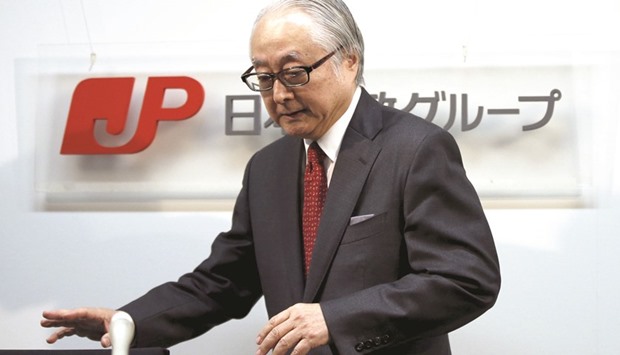Japan Post Holdings Co, one of the nation’s biggest employers, rejected its workers’ request to raise salaries, citing the central bank’s negative interest-rate policy.
Base pay for Japan Post’s 224,000 employees will remain unchanged in the year starting April 1, Toshitaka Shima, head of human resources at the newly listed postal and financial services giant, said at a briefing in Tokyo late Thursday. Its labour unions had been demanding pay increases ranging from ¥6,000 ($54) a month to ¥20,000.
The decision undermines the government’s goal of defeating deflation and reviving the economy through a virtuous cycle of wage and price growth, which the Bank of Japan’s recently introduced negative-rate policy is intended to contribute to.
Japan Post’s banking unit and insurance units rely on interest income from government bonds to generate investment returns and profit, and yields on most of the securities are now below zero.
The group will pay a one-time summer bonus of ¥8,000 in appreciation of workers’ efforts towards last November’s initial public offering, Shima said. Japan Post’s $12bn, three-pronged IPO was the nation’s biggest privatisation deal this
century.
Other large employers such as Toyota Motor Corp, Panasonic Corp and Hitachi are planning to give their workers more modest pay rises this year than in 2015, as part of the nation’s annual spring wage talks.
Japan Post named Masatsugu Nagato as president of the holding company this week. Nagato, who is currently chief of the banking unit, said on Wednesday that negative rates are having no bigger impact on Japan Post Bank Co than its competitors and the company is able to withstand the policy.
Nagato, 67, will next month replace Taizo Nishimuro, 80, who was hospitalised in February because of an undisclosed condition.

Nagato: Negative rates are having no bigger impact on Japan Post Bank.
